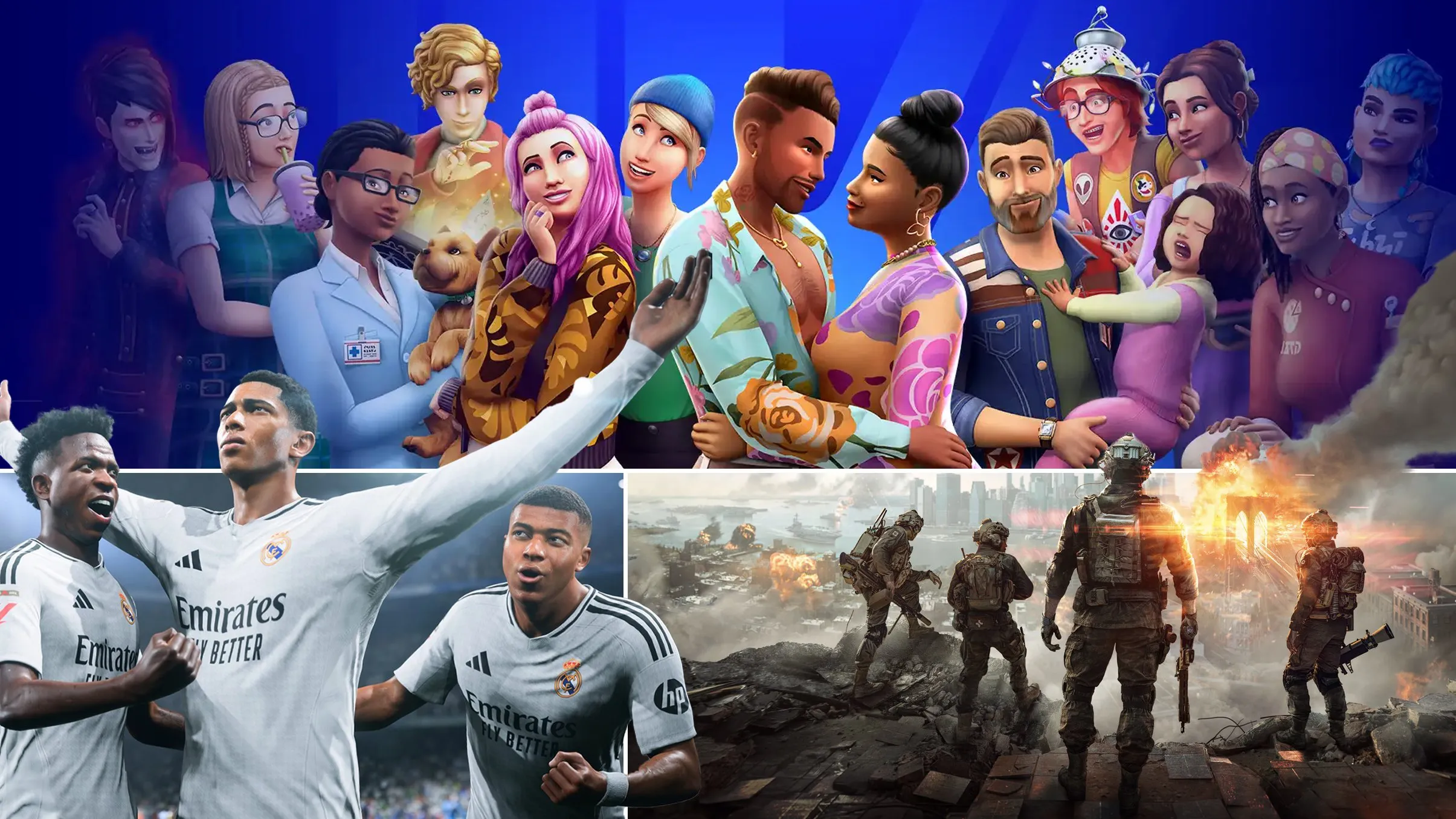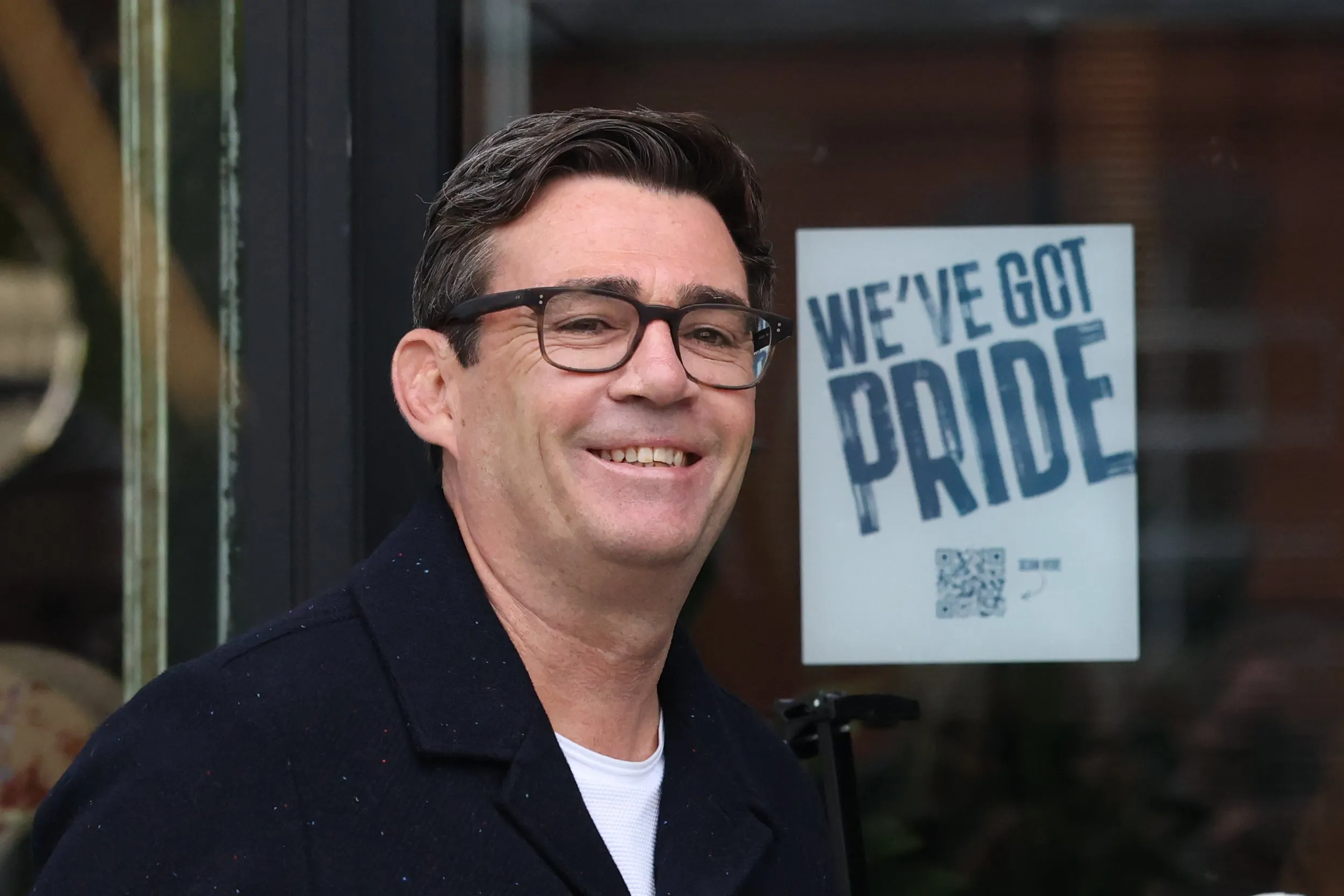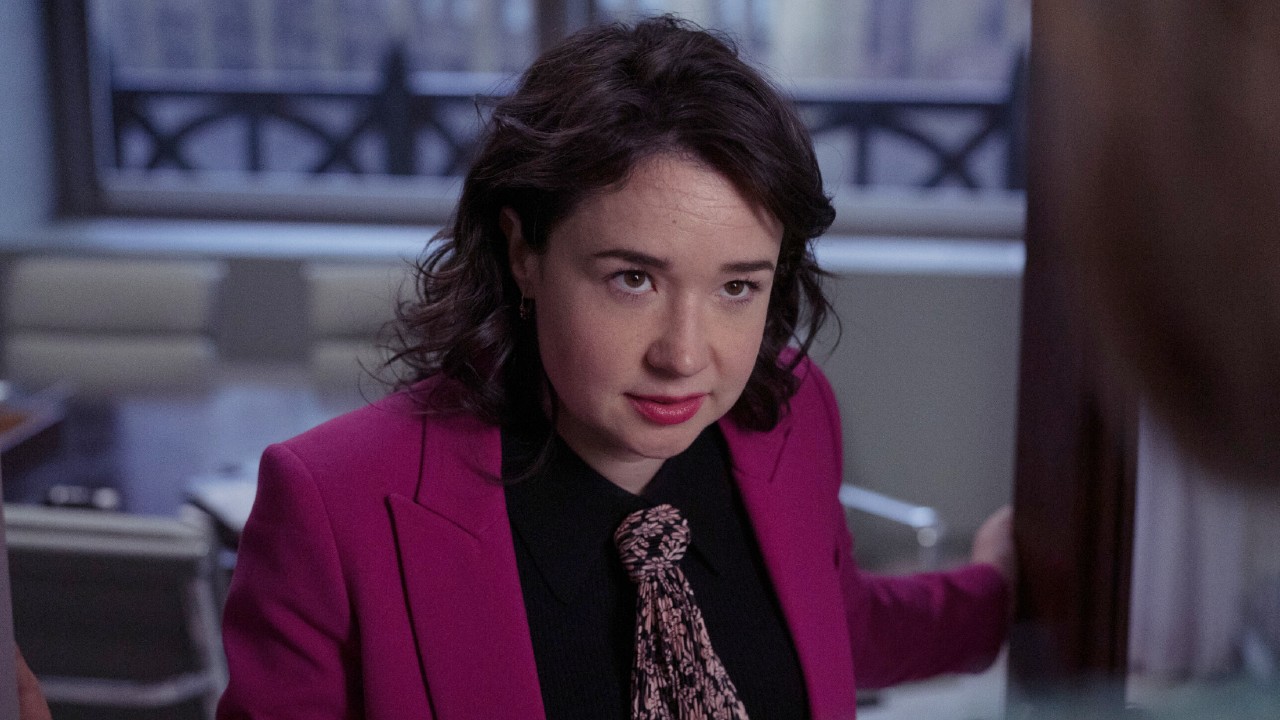By Michael Beckwith
Copyright metro

All these EA properties will change, but in what way? (EA/Metro)
What does the EA buyout mean for the venerable publisher, and games like EA Sports FC and The Sims, and how will the wider video games industry be affected by this sudden change in direction?
On Monday, it was announced that third party publisher Electronic Arts would be going private, as part of a $55 billion acquisition deal by a consortium of investors comprised of Saudi Arabia’s Public Investment Fund (PIF), private equity firm Silver Lake, and investment firm Affinity Partners (which was founded by Donald Trump’s son-in-law, Jared Kushner).
In simple terms, EA will no longer be a publicly traded company, meaning it won’t have to answer to Wall Street, but this creates a lot of questions regarding what sort of impact this will have in the long term.
How will EA change under this new deal? How will it affect the games it makes and what impact will it have on the industry at large? And why are some people already expecting the worst?
What does EA think?
EA is obviously spinning the whole scenario as a positive, with CEO Andrew Wilson (who will remain in charge) spitting out your typical post-acquisition word salad about how the deal allows the company to ‘create transformative experiences to inspire generations to come.’
He also told employees: ‘This moment is a recognition of your creativity, your innovation, and your passion. You have built some of the world’s most iconic IP, created stories that have inspired global communities, and helped shape culture through interactive experiences. Everything we have achieved – and everything that lies ahead – is because of you.’
Can things only get better for EA? History suggests the answer is no (Investopedia)
Anyone who’s been paying attention to the last five or so years of the games industry knows how hollow these platitudes ring. Xbox boss Phil Spencer spoke in similarly optimistic terms about Microsoft’s buyout of Activision Blizzard in 2023, saying ‘As one team, we’ll learn, innovate, and continue to deliver on our promise to bring the joy and community of gaming to more people.
‘We’ll do this in a culture that strives to empower everyone to do their best work, where all people are welcome, and is centred on our ongoing commitment of Gaming for Everyone.’
Since then, over 6,000 Xbox employees have been let go from the company. That’s been the story at most big Western publishers over the last three years, with EA sacrificing hundreds, if not thousands, of its own staff during that time (unlike Microsoft, though they’ve kept the exact figures obscured).
The Activision buyout isn’t quite the same as the EA one, since it’s not as simple as one larger company buying a smaller one. In fact, because this is a leveraged buyout, the consortium is only spending $36 billion of its own money.
Another $20 billion is instead being provided as debt financing by JP Morgan. That’s debt which EA will suddenly be saddled with once the deal is finalised in early 2026.
Such acquisitions always lead to widespread layoffs (Microsoft)
As bad an idea as that sounds – buying a company by immediately putting it into massive debt – it’s unfortunately very common.
According to the Financial Times, which spoke with people familiar with the deal, EA’s plans to deal with this debt involve betting big on – you guessed it – AI. As in, use it for asset generation, voice acting, playtesting; essentially anything where EA can cut costs by not paying real humans to do the job.
This already feels doomed to fail, though, as this kind of AI technology isn’t sufficiently advanced enough to do any of those jobs (or someone like EA would’ve done it already). Xbox proudly demonstrated the kind of games it could get AI to make earlier this year and they looked awful, and were widely roasted by both regular gamers and developers.
What do financial experts think of the EA buyout?
When it comes to expert analysis, there are some positives to EA going private. As Aldora CEO Joost van Dreunen told Ars Technica, EA would no longer be compelled to regularly beat quarterly earnings and can refocus on long-term planning. This means taking ‘bigger swings’ and capitalising on ‘more latitude for creative roadmaps and longer development cycles.’
DFC Intelligence’s David Cole agreed, saying EA could afford to make ‘more long-term strategic bets that do not pay off right away.’ Analysts at Freedom Capital Markets echoed the sentiment (via Reuters), saying EA should be able to ‘increase its focus on long-term growth opportunities that may have been viewed as too risky or expensive as a public company’.
On paper, this all sounds quite lovely and, in an ideal world, would lead to a more diverse portfolio of games that wouldn’t be dismissed as failures for not making billions of dollars in a month.
However, this would still result in less games out of EA overall and, if that’s the case, it’s not going to diversify its output; it’s going to put all its energy in the few guaranteed billion dollar hits it has to ensure it keeps making as much money as possible.
After all, EA still has investors it needs to keep happy and that’s not going to be achieved by spending all their time on experimental titles that may or may not be a hit. Not that has ever been EA’s way of doing things at any time in its existence.
EA Sports FC 26 already needs to perform better than last year’s entry (EA)
F-Squared analyst Michael Futter expects layoffs, studio closures, and even EA selling off some IP to help service its new debt: ‘Servicing $20 billion of debt means cutting costs. Companies the size of EA often see labour as a number to be reduced on a spreadsheet.’
Attorney Mona Ibrahim, who previously served as lead counsel for Epic Games, has described the deal as ‘problematic’ for the games industry, saying on LinkedIn, ‘Leveraged buyouts have been out of favour for over a decade for a reason, and while EA has been seeing steady revenue increases, their R&D and marketing costs have also increased.
‘Leveraged buyouts leverage debt, which usually means more layoffs, smaller budgets for growth, and fewer risks.’
What do developers think of EA?
Considering all the talk of inevitable layoffs, it’s safe to assume any employees under EA are extremely nervous at the moment, regardless of anything Wilson tells them, especially regarding Saudi Arabia’s involvement.
As a reminder, the PIF is owned and controlled by Saudia Arabia’s Prince Mohammed bin Salman, and his government has routinely been accused of human rights violations, including the alleged murder of journalist Jamal Khashoggi.
Naturally, there are concerns that the country’s own politics will influence EA, particularly its less than progressive stance towards the LGBTQ community, with Saudi Arabia offering no legal protections for LGBTQ rights and treating any same-sex sexual activity as illegal.
Analyst Michael Futter has called the potential erosion of LGBTQ friendly material from games like The Sims the ‘canary in the coal mine’ (EA)
Although Wilson didn’t directly address this in his message to employees, he did pledge that ‘Our values and our commitment to players and fans around the world remain unchanged.’
Game File spoke with a couple of anonymous EA employees about this and they don’t seem convinced. ‘Andrew Wilson basically said ‘f you’ to all women and LGTBQ employees at EA with this deal,’ said one.
‘It just shows how many people have been collateral this past year for executives to make out rich. Nothing feels great. And we know, when the deal closes, it’s going to get worse before it gets better, if better is even possible.’
Another said, ‘I’m nervous about what this means in terms of workforce once the deal is closed, as layoffs usually follow those type of acquisitions. And on a personal level, those future owners are really not in line with my values and beliefs.’
Outside of EA, opinions among developers aren’t any better, with several lamenting the state of EA and especially its workers, as well as how they expect the company will be dismantled over time.
Back in my day, EA bought things and dismantled them, not the other way around— Mike Bithell (@mikebithell.bsky.social) 2025-09-29T12:42:19.355Z
‘There’d be something poetic about EA taking a leveraged buyout and getting their IP sold off and inevitably getting shut down, if only the tens of thousands of people it would meaningfully affect were not the exact same working class whose studios were acquired by EA and shut down and their IP lost,’ wrote narrative designer Stella Sacco.
Trick Weekes, a former writer at BioWare, believes EA will shut down the Mass Effect and Dragon Age studio as a consequence of its frequent depiction and inclusion of LGBTQ characters, in order to appease the new investors.
What does the buyout mean for EA games?
It’s far too early to tell what, if any affect this will all have on the actual games. Maybe there’ll be zero meddling involved, and EA will be allowed to continue as normal as long it’s making money, but even if that’s the case, there are bound to be changes.
With such a heavy debt in its lap, EA will likely triple down on monetisation in games like the EA Sports FC series and The Sims 4, which are already riddled with microtransactions and/or DLC, as well as the upcoming Battlefield 6.
This could even extend to other games that typically don’t feature such elements. Wilson blamed Dragon Age: The Veilguard’s underperformance on its lack of live service game elements, so the odds of the new Mass Effect undergoing a rebrand have only gone up.
That’s assuming EA continues to give such games the time of day. If anything, it’s believed that anything unrelated to the company’s core franchises – sports games, The Sims, and Battlefield – stands to go on the chopping block.
This puts studios such as BioWare, Respawn, and Codemasters – all of whom have already suffered layoffs in recent years – at greater risk. We already know EA is willing to scrap Star Wars related games, so Respawn isn’t automatically safe just because it still has one more Star Wars Jedi game in the pipeline.
Publishing indie games will likely become less of a priority at EA, which has had a decent track record supporting smaller games through its EA Originals label, such as Lost In Random and Tales Of Kenzera: Zau.
It Takes Two and Split Fiction have earned enough prestige that developer Hazelight may keep receiving funding, but it wouldn’t be surprising if the studio went shopping for a new publishing partner. The games are profitable but not on the sort of scale that’s going to help make a dent in EA’s new debt.
Split Fiction was a sales success but it was hardly EA Sports FC levels of profitable (EA)
But what if the PIF does meddle? Well, we can look to SNK to see how that might work out. SNK is owned by the Misk Foundation – another firm founded by Prince Mohammed bin Salman – and this resulted in the bizarre inclusions of footballer Cristiano Ronaldo and DJ Salvatore Ganacci as playable fighters in Fatal Fury: City Of The Wolves, since both of them have close ties to the country and its royal family.
Should we expect a Ronaldo skin in Battlefield 6 now, even after EA mocked Call Of Duty’s reliance on celebrity marketing in its last trailer? A Ganacci themed DLC set for The Sims 4? Maybe Titanfall 3 will finally be a thing but only with unwanted cameos. It’s all hypothetical, but Fatal Fury has demonstrated none of this is impossible.
There’re also the concerns about eroding any LGBTQ related content from future EA games. The Sims is famously full of such content, allowing for same sex relationships and transgender characters, but some fear all this could be patched out.
And as analysts have said, some of these games may be abandoned entirely if EA doesn’t think they’re worth spending the money on anymore. Worst case scenario, they’ll rot away in a vault somewhere, untouched, or the IPs and their related studios will be sold to some other corporate overlord, like Microsoft or the Embracer Group.
That’s also assuming anyone’s even interested in buying. We’ve seen plenty express hope somebody else buys out BioWare, but the studio is sadly not as prestigious as it once was and other companies might not be willing to give it a chance after the last Dragon Age game made headlines for underperforming.
Circana’s Mat Piscatella probably puts the whole situation best: ‘No one knows exactly what will happen here, but there’s history of similarly structured buyouts to look at. Of course, none have been at this price tag before. Have to believe the bedrock of large-scale publishing has shifted dramatically. Will take time to see exactly how.’
In short, it’s not a question of whether EA’s new status quo will be good or bad for its games and the industry at large. It will be bad; it’s a question of how bad.
EA reportedly had high expectations for Battlefield 6 to begin with, and now they’re likely even higher (EA)
Email gamecentral@metro.co.uk, leave a comment below, follow us on Twitter.
To submit Inbox letters and Reader’s Features more easily, without the need to send an email, just use our Submit Stuff page here.
For more stories like this, check our Gaming page.
ArrowMORE: When is Battlefield 6 out? Release date, cost, pre-order and what to expect from game
ArrowMORE: EA Sports FC 26 review – football’s biggest franchise parks the bus
ArrowMORE: Skate early access review – how to be pro skater according to EA



